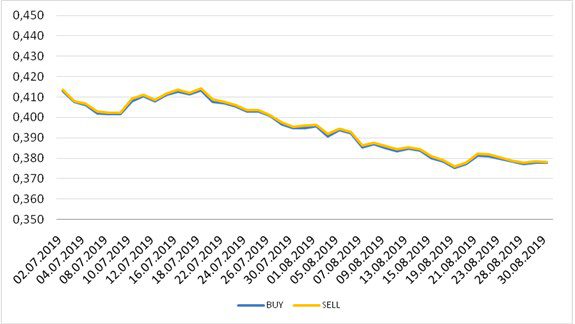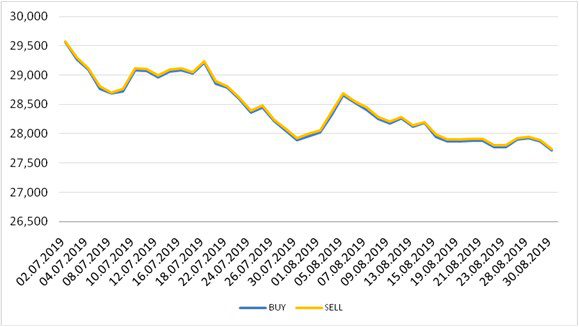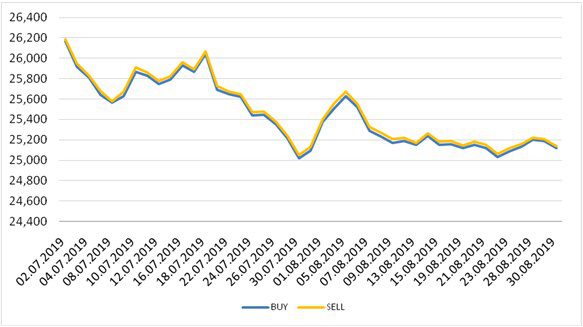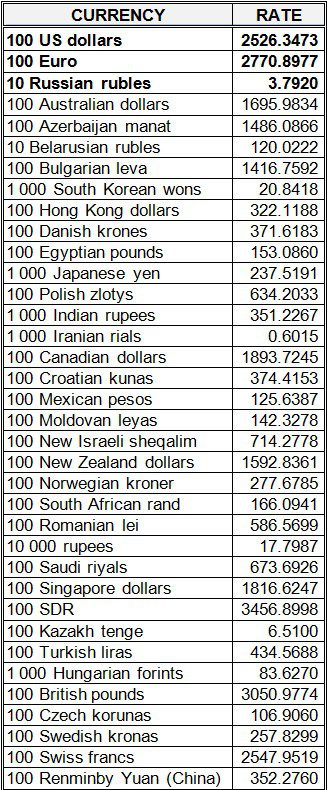Changes in currency exchange, uah/rub, 02.07.19.-30.08.19

Changes in currency exchange, uah/eur, 02.07.19.-30.08.19

Changes in currency exchange rates, uah/usd, 02.07.19.-30.08.19

National bank of Ukraine’s official rates as of 03/09/19

Source: National Bank of Ukraine

New British Ambassador to Ukraine Melinda Simmons has arrived in Kyiv and handed over the copies of her credentials to Deputy Foreign Minister of Ukraine Olena Zerkal. “New British Ambassador Melinda Simmons has handed over copies of her credentials to Deputy Foreign Minister of Ukraine Olena Zerkal,” the British Embassy said on Twitter.
The press service of the Foreign Ministry of Ukraine, in turn, reported that Simmons reaffirmed the unchanged position of the UK government regarding political and practical support for Ukraine, primarily in the issue of resolving the situation in Donbas caused by Russian aggression.
The UK is determined to expand and diversify its technical assistance programs for Ukraine with a particular emphasis on the development of regions suffering from Russian aggression, Simmons said.